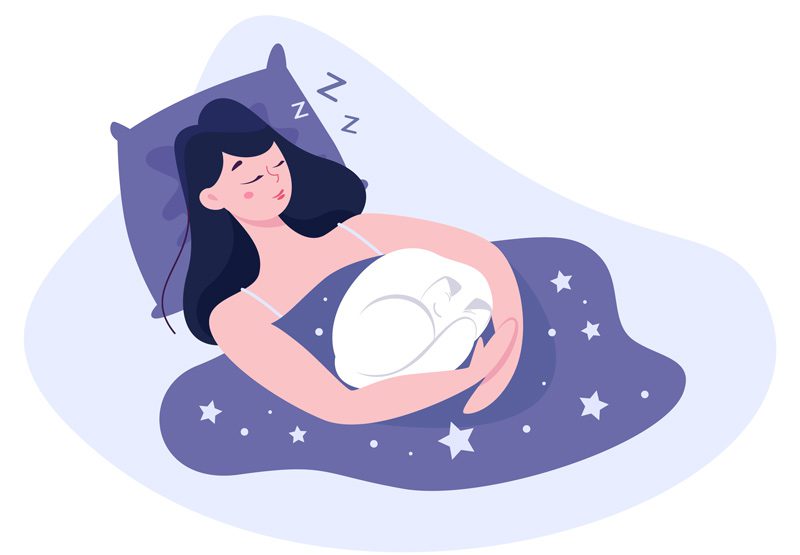Trouble Sleeping? You’re Not Alone
When you are having trouble getting to sleep, it can sometimes feel as though you are the only person who is awake anywhere in the world. But issues related to sleep affect many people from all walks of life. Heck, even Australian musicians of the 1980s faced challenges getting the sleep they needed.
In “Overkill,” songwriter and Men at Work front man Colin Hay sings:
I can’t get to sleep
I think about the implication
Of diving in too deep
And possibly the complications
Especially at night
I worry over situations
I know will be alright
Perhaps it’s just imagination
That, arguably, is quite a bit bleaker than the band’s famous song involving vegemite. But it also reflects the reality of all the people who toss and turn at night to no avail. And there is a pretty good chance you count yourself among them since around 25 percent of people in the United States struggle with insomnia each year (as for Mr. Hay and his countrymen, the data suggests around one-third of Australians battle insomnia at one time or another).
Ambien: Solution or Problem?
If your sleep struggles are severe enough, your physician may prescribe Ambien (the drug’s generic name is zolpidem). The drug is extremely effective at helping a person fall asleep and stay asleep, and that, of course, provides much-needed relief. It is no overstatement to say that finally getting some sleep can be life-changing.
But if misused, Ambien can be life-changing in another, far less positive way.
The Slide From Welcome Sleep to Worrisome Abuse
One of the most important things to know about Ambien is that it is not intended for extended use. If your doctor decides to prescribe it, odds are they will give you a small dose for a short period of time.
But as that limited supply quickly dwindles, you might find yourself worried that things will go right back to the way they were before. What if you can’t ever get to sleep without the help of Ambien?
With that worry gnawing at you, it might seem reasonable to start doing things like making appointments with multiple doctors in the hope of acquiring additional prescriptions for Ambien. If you manage to get your hands on a larger supply, it might seem reasonable to bump up your dosage—because you hope for even deeper sleep or because you have come to like the hypnotic high the drug can induce. If you are enjoying the high, it might seem reasonable to start taking Ambien with other drugs in pursuit of new and different experiences.
Now you have traded one problem—chronic insomnia—for a different problem—a substance use disorder.
The Woes of Withdrawal from Ambien
If you have developed a problem around Ambien, it is extremely important to keep this fact in mind: You should not quit taking the drug “cold turkey.” Doing so opens you up to a range of troubling withdrawal symptoms. Those symptoms may include:
- Insomnia (ironic, huh?)
- Mood shifts including irritability and agitation, nervousness, and/or sadness
- Stomach issues including discomfort, cramping, and/or nausea and vomiting
- Increased heart rate and/or breathing rate
- Sweating and/or flushing
- Panic attacks, tremors, and/or delirium
- Intense cravings for Ambien that may be exceptionally difficult to overcome
- In the most severe cases, seizures or convulsions caused by the rapid increase in brain activity once the drug is no longer being taken
The best way to avoid or minimize these sorts of symptoms is to taper off Ambien under medical supervision, perhaps in a residential treatment facility where you can undergo detoxification and rehabilitation. Through individual and group therapy, you will acquire strategies, resources, and coping mechanisms to help you leave Ambien behind for good.
But Wait! I Still Can’t Sleep!
If you have overcome a substance use disorder related to Ambien, you may be frustrated to find yourself back where you started: sober and awake. The sober part is good, but the awake part is still a problem. So what can you do now?
Fortunately, there are a number of things you can try to improve the likelihood that you can get restful sleep without resorting to a pharmaceutical.
An excellent place to start is developing a nighttime routine. That means establishing a bedtime you can stick to (and a regular time to arise, too). And it also means setting yourself up for success in the hours before that bedtime. Eliminate caffeine late in the day. Put your screens down at least an hour before bed. Establish some restful habits like setting aside some time to read an enjoyable book and/or sip some herbal tea or warm milk. Maybe a warm bath or some gentle stretching or writing in your journal can help you get in the right mindset for sleep.
Make sure your sleeping space is uncluttered, cool, and comfortable. Make sure it is dark and quiet enough to allow you to drift off (curtains to block out streetlights and a white noise machine to block out intrusive sounds could both be helpful). Having the right environment—and reserving that environment for sleeping—can really make a difference.
If your sleep problems persist, however, it is time for a conversation with your doctor. Make sure you are honest about any substance use difficulties you have had—including any addiction to Ambien.
We are Awake to the Dangers of Ambien
At French Creek Recovery Center, we understand how a drug intended to help—like Ambien—can become a drug that is doing harm. No matter what substance you may be struggling with, we can help you put drugs or alcohol behind you through our evidence-based, compassionate, and personalized approach to treatment. Rest easy knowing we can get you on the road to recovery.

